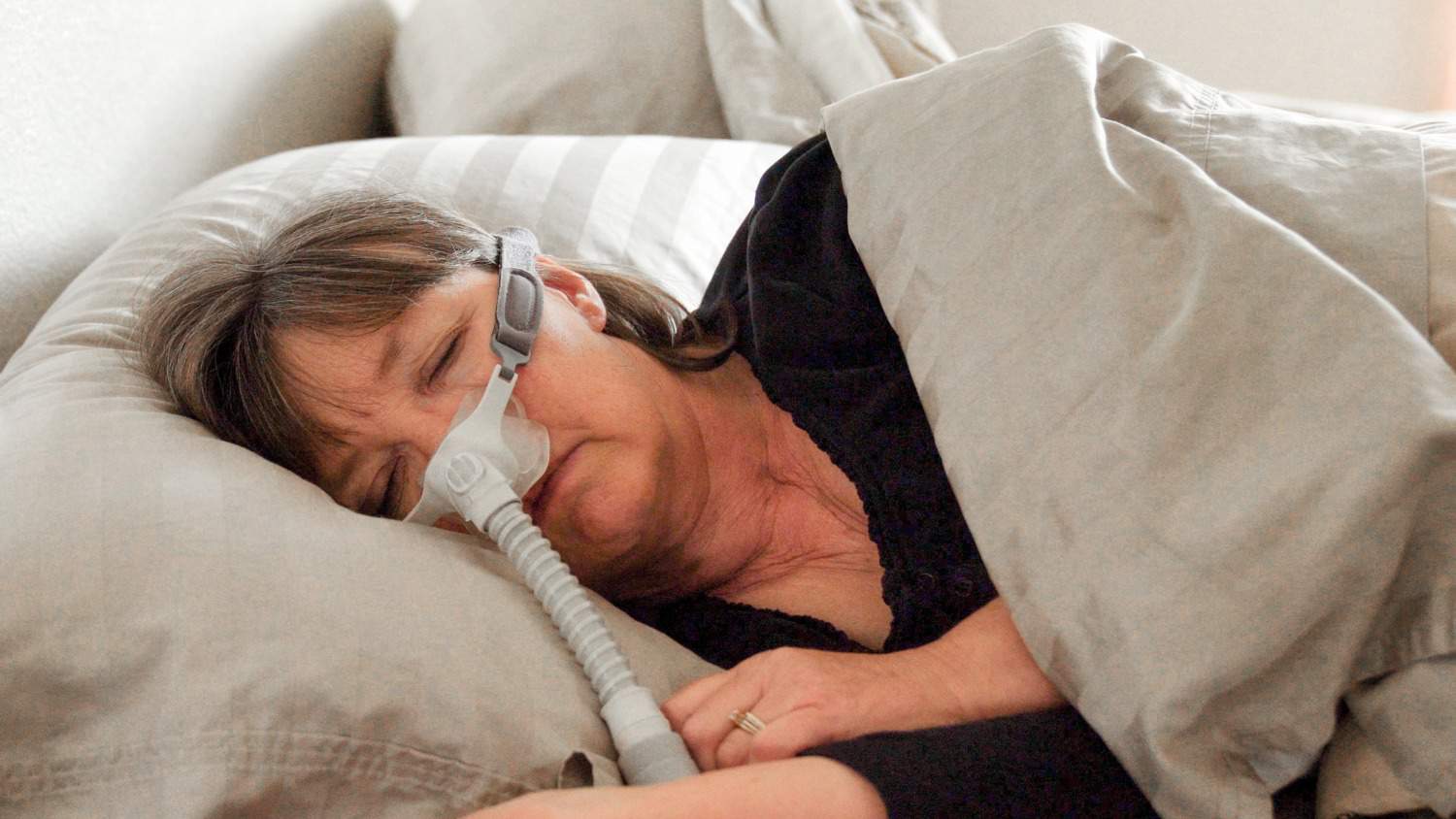
Does Sleep Apnea Trouble You in Your 60s? Self-Talk Can Give You the Empowerment You Seek
I was recently diagnosed with severe sleep apnea. The sleep study test found I had lapses of breathing for at least 10 seconds about 35 times an hour. Shocking!
Some of you probably have it too as the condition seems to affect people as they get older. Our throats close up while we are asleep, unbeknownst to us.
So, I Have Sleep Apnea
I discovered my problem when I began to have dreams that I could not breathe, and I woke up gasping. Very scary. My doctor referred me to the sleep department. There I learned that untreated sleep apnea has serious implications, including stoke and a variety of heart problems.
It affects your night life, interrupting your sleep. It affects your waking life with fatigue and headaches. It even affects your sleeping companions – with snoring. So, to address the problem, they give you a contraption, the CPAP machine that continually blows air into your nostrils.
The CPAP
I have been going through a kind of unpleasant process of getting used to the CPAP machine. CPAP stands for continuous positive airway pressure.
When you hook yourself up, the CPAP makes you look like an elephant with a long trunk attaching you to a little machine. Getting used to it takes time.
While you know that it is there to help you breathe, at first it feels like you cannot breathe attached to the mask. That is where I needed a healthy dose of self-talk.
Enter Self-Talk
Although this transition has taken me a few weeks, I keep reminding myself:
- I am not the only one who has had a hard transition; others have told me how getting used to the machine takes time, but some have found it to be life-changing.
- The discomfort will pass, and I will get used to it and be better for it.
We all have a stream of words running through our minds with the stories we tell ourselves. These “explanatory stories” help us make sense of what happens to us. But often we forget that these explanatory stories are made up.
We have either heard them or invented them. And due to the fact that they are invented, we can actually make the effort to change them. We can turn around some of the stories that are depressing, self-deprecating, guilt-ridden, or blaming to explanations that help us heal and be hopeful.
Professional athletes use self-talk all the time to perfect their performance. It has been studied extensively and researchers found that motivational self-talk has great results. They have found improved performance by athletes who exercise self-talk.
Turn the Negative into Positive
Here are just a few ways we can transform negative self-talk:
Catastrophizing
Different forms of catastrophizing can be transformed to a goal-setting message:
Negative: “Everything is terrible. I don’t see hope at the end of the tunnel.”
Positive: “Even in the wake of overwhelming emotions, I am doing my best. I keep trying.”
Statements Casting Blame
Instead of using statements that cast blame, use words that can help you take responsibility for your part in a situation:
Negative: “Why do they always blame me?”
Positive: “I know I made some mistakes, but I will make every effort to do better next time.”
Fear Statements
Statements of fear can be transformed to ones that support courage.
Negative: “I never will be able to change. I’m afraid to try.”
Positive: “I know change is hard, but I will not give up trying.”
Doomsday Thoughts
General thoughts of Doomsday can be changed into hopeful words.
Negative: “Everything is so hard for me; I can’t take it anymore.”
Positive: “I am going through a rough patch, but things are sure to get better!”
We All Adapt
Self-talk can help us realize that “this too shall pass.” I like to think of the old Shirelles song of the 60s:
Mama said there’ll be days like this,
there’ll be days like this, my mama said.
Hey, hey, hey,
Don’t you worry.
So, each night with my CPAP machine gives me one more tiny chance for me to motivate myself that it will get better – and it has!
What kind of sleep problems do you experience? Have you been diagnosed with sleep apnea? Have you used self-talk to make the adaptation process easier? Please share your thoughts below.
Tags Medical Conditions






